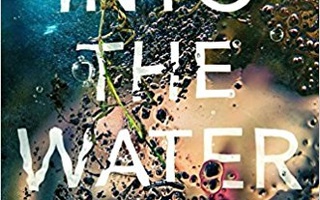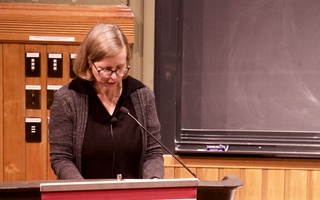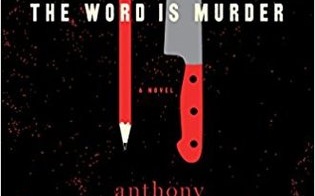{shortcode-51a76f4de6f8f35b90af1bbfdc9cf846b15e36e7}Paul La Farge’s new novel “The Night Ocean” contains books within books within books, like a literary version of a Russian nesting doll. At the beginning of the novel, Marina, a psychotherapist, is dealing with the tragic suicide of her husband, Charlie Willett. However, the note he leaves and his missing body lead her to believe that he is not actually dead but committing pseucide—a faked suicide—instead. The novel then retraces the last few years of Charlie’s life as he collects information about famously eccentric fiction writer H. P. Lovecraft’s alleged affair with a young man.
The book begins with mystery: Is Charlie dead or is he faking it? La Farge takes the story to where it all began in over two hundred pages. While much of the beginning is relevant, at times it drags on for too long. There are a few too many pages of excerpts from the “Erotonomicon,” H. P. Lovecraft’s supposed erotic journal. Early on Charlie discovers the journal is a fraud and is determined to discover why anyone would write or publish a fake journal. Excessive portions of the novel are filled with details that quickly get debunked, to the point where many of the excerpts from the “Erotonomicon” feel redundant. La Farge then takes nearly one hundred pages to describe the life of Robert Barlow, the young man H. P. Lovecraft is supposed to have had an affair with. A thorough historical background of Lovecraft’s romantic life is thus established, but all this attention and detail to Barlow is less interesting to those who may be reading “The Night Ocean” for its mystery, which La Farge leads one to believe will be the focus of the story, than to those who are genuinely interested in the life of H. P. Lovecraft.
While the mystery is entertaining, the characters are less than charming. Charlie Willett, the main character, is unlikeable more often than not. From the glimpses we get into his life, he appears utterly consumed by his work and often takes his frustrations out on his wife. He constantly makes poor decisions and relies heavily on alcohol or prescriptions his wife writes for him. The narrator and Charlie’s wife, Marina, is a much more sympathetic character—thanks to the poor situations her husband puts her through—but remains relatively unappealing. Marina allows Charlie to walk all over her and doesn’t step in to help Charlie, even when he is clearly dealing with depression, until it is almost too late. It seems strange and inconsistent that Marina, a therapist, doesn’t realize the extent to which Charlie is suffering. Peripheral characters are often loathsome, hostile, or unhelpful, leaving the reader with very few characters to actually connect with.
La Farge also successfully explores some of the struggles of being homosexual in the 1940s and ’50s to add a more meaningful dimension to the novel. At the time, the discovery of gay men’s sexuality would mean unemployment and exile from their entire community. Those who were not ashamed of their sexuality were still forced to hide it from the general public and often times they were blackmailed by those who knew their secret. H. P. Lovecraft received a fair amount of backlash from his fan base when his homosexuality was revealed, showing that even those who loved his writing could not look past their disgust and homophobia to continue appreciating his work. Ironically, however, these same fans were able to overlook Lovecraft’s racist views. Many were content with reading the works of a racist man, but not the works of a gay man.
Although the beginning of this novel is a bit bogged down in detail, La Farge creatively weaves a mystery that makes it worth pushing through the bulky historical contextualization of the novel. “The Night Ocean” also puts a twist on the discussion of issues such as homosexuality and racism by putting it in the context of science fiction and academia. For those who love historical fiction or science fiction, this is a good read.Read more in Arts
Strippers and Shoot-outs: ‘SKETCH’ Showcases Lineup of Comedic SkitsRecommended Articles
-
Squash Team to Open Intercollegiate Season With Wesleyan TodayThe varsity squash team opens its intercollegiate season today at Wesleyan in a match that promises to be little more
-
MEN OR SHADOWS--WHICH?"Hey, Charlie! The new Rank List is out. I don't see your name on it," says one average undergraduate to
-
 'Into the Water' Is A Diluted Thriller
'Into the Water' Is A Diluted Thriller -
 Jenny Erpenbeck and Claire Messud Talk Refugees, ‘Go, Went, Gone’
Jenny Erpenbeck and Claire Messud Talk Refugees, ‘Go, Went, Gone’ -
 ‘The Word Is Murder’: A Mystery that Blends Fiction and Reality
‘The Word Is Murder’: A Mystery that Blends Fiction and Reality













